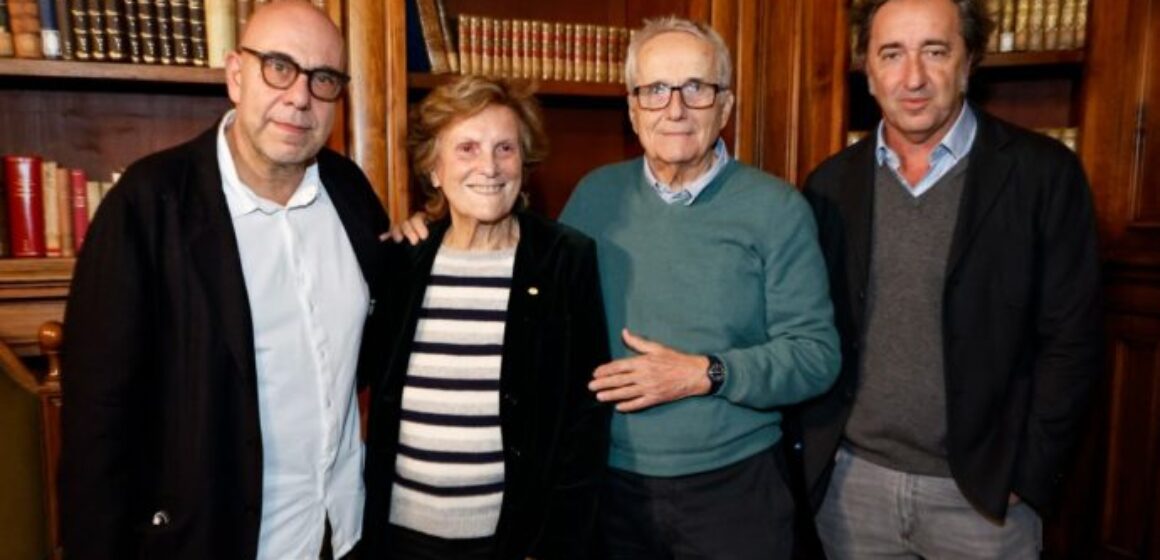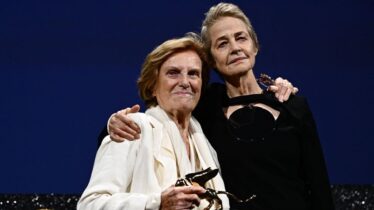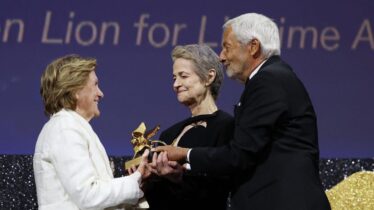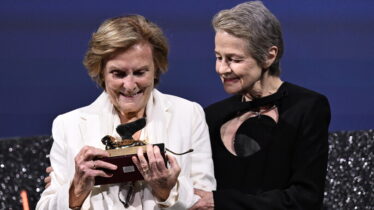Liliana Cavani ribelle, scandalosa e politica: i 90 anni di una regista in mondo di uomini
La regista è stata festeggiata al ministero della Cultura a Roma con tutti gli onori di una presidentessa della repubblica del cinema. Tra gli invitati registi erano praticamente tutti uomini: Paolo Sorrentino e Paolo Virzì, ma soprattutto i grandi vecchi rimasti ancora di quel cinema dei sessanta/settanta che diede lustro all’industria e alla cultura italiana: Pupi Avati, e una sorta di doppio mica tanto speculare come Marco Bellocchio
Ribelle, scandalosa, politica. Regista donna in un mondo di uomini. Liliana Cavani compirà 90 anni il 12 gennaio intanto è stata festeggiata al ministero della Cultura a Roma con tutti gli onori di una presidentessa della repubblica del cinema. Oltretutto, e guarda caso, tra gli invitati registi erano praticamente tutti uomini. Paolo Sorrentino e Paolo Virzì, ma soprattutto i grandi vecchi rimasti ancora di quel cinema dei sessanta/settanta che diede lustro all’industria e alla cultura italiana: Pupi Avati, e una sorta di doppio mica tanto speculare come Marco Bellocchio. “Sembrava un’assemblea studentesca”, ha commentato il ministro Sangiuliano (“Per me lei è La pelle, film inno alla libertà”), che ha svelato come l’imbeccata per la festa di compleanno, torta bianca panna e rose rosse in decorazione, sia stata di Vittorio Sgarbi (“tra i film che hanno segnato la mia infanzia ci sono Ultimo tango a Parigi e Il portiere di notte”).
Curioso che una cattolica del dissenso e controcorrente come la Cavani, per decenni vicinissima (e lontanina) dal vulnus “social-comunista” del cinema italiano, sia finita celebrata nell’era Meloni. Le carte si rimescolano, ma senza changer la femme. La carpigiana Cavani che finisce a Roma a girare documentari per la Rai quando nemmeno ha 30 anni e poi esordisce con un Francesco (1966), sul santo d’Assisi, dove l’icona simbolica della ribellione al sistema, Lou Castel, indossa i poveri panni del protagonista. Si racconta che la miniserie tv (due puntatee) registrò venti milioni di spettatori nel maggio del ‘66. Gli anni del disgelo post ’48, l’avvento del Concilio Vaticano II, il cattolicesimo che muta forma e sembra pure sostanza, per la Cavani diventa esordio cinema vero (Francesco finirà in sala per intero nel 1972) con un Galileo in purezza nell’anno della contestazione del ’68. Film sulla curiosità di scienziato che non da scalmanato o da indisciplinato sfidò la visione sul cosmo della Chiesa. Opera che peraltro venne prodotta dalla Rai, ma poi in qualche modo rinnegata dalla Rai stessa e mai trasmessa (l’aneddoto di Andreotti che prega perfino Craxi di non farlo trasmettere in tv è storia).



